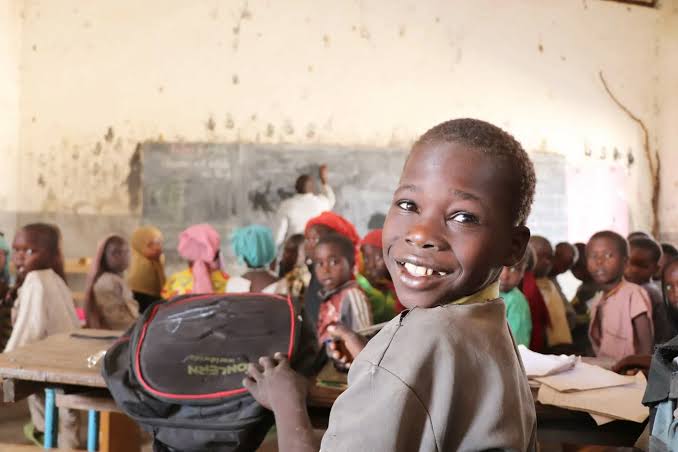The key impacts and poverty reduction
Poverty remains one of most pressing issues in Nigeria affecting millions of individuals. It hinders country's development. Education is widely recognized as a key instrument for poverty reduction. It offers individuals tools they need to improve their economic situation and contribute to societal growth. This article explores the impact of education on poverty reduction in Nigeria. It examines various ways in which education influences economic opportunities, social mobility and overall well-being.
The State of Poverty in Nigeria
Nigeria despite being rich in natural resources, faces significant economic challenges. Recent reports indicate substantial portion of population lives below poverty line. Factors such as unemployment underemployment, inflation and lack of infrastructure contribute to widespread poverty. Regional disparities and social inequalities exacerbate situation. This makes it difficult for many Nigerians to escape cycle of poverty.
Education as Catalyst for Economic Opportunities
One of most direct ways education impacts poverty reduction is by enhancing economic opportunities. Education equips individuals with essential skills and knowledge It makes them more competitive in job market. In Nigeria unemployment rate is high. Many young people struggle to find gainful employment. However, those with higher levels of education are more likely to secure well-paying jobs and stable employment.
Vocational and technical education in particular plays crucial role in poverty reduction. By providing practical skills and training these programs prepare individuals for specific trades. And industries. Increasing their employability. In regions where traditional educational opportunities are limited, vocational training can offer viable pathway out of poverty. By enabling individuals to start their own businesses or find work in skilled trades.
Education and Social Mobility
Education is a powerful tool for social mobility, allowing individuals to improve their socio-economic status and break the cycle of poverty. In Nigeria, access to quality education remains unequal, with children from affluent families more likely to attend good schools and pursue higher education. Conversely, children from impoverished backgrounds often face barriers to education, such as lack of funding, inadequate school facilities, and the need to work to support their families.
By investing in education and ensuring that all children have access to quality schooling, Nigeria can promote social mobility. Scholarships, financial aid programs, and community-based initiatives can help bridge the gap, enabling children from low-income families to pursue their educational aspirations. When individuals from disadvantaged backgrounds succeed academically and professionally, it can inspire and uplift entire communities, fostering a culture of aspiration and progress.
Education and Health Outcomes
The link between education and health is well-documented, and improved health outcomes are another critical aspect of poverty reduction. Educated individuals are more likely to make informed health decisions, have better access to healthcare services, and adopt healthier lifestyles. In Nigeria, where health challenges such as maternal and child mortality, malnutrition, and infectious diseases are prevalent, education can play a transformative role.
For example, educated mothers are more likely to seek prenatal care, ensure their children receive vaccinations, and adopt practices that promote child health and development. Furthermore, education can raise awareness about sanitation, hygiene, and preventive measures, reducing the incidence of diseases and improving overall community health. Healthier individuals are more productive and better equipped to pursue economic opportunities, creating a positive feedback loop that contributes to poverty reduction.
Education and Gender Equality
Gender inequality is a significant barrier to poverty reduction in Nigeria, and education can be a powerful tool for promoting gender equality. Historically, girls in Nigeria have faced greater obstacles to education, including cultural norms, early marriage, and limited resources. Educating girls and women not only improves their economic prospects but also has far-reaching benefits for society.
When girls are educated, they are more likely to delay marriage and childbirth, participate in the workforce, and contribute to their families' economic stability. Educated women are also more likely to invest in their children's education, creating a cycle of empowerment and opportunity. By prioritizing girls' education, Nigeria can address gender disparities and unlock the potential of half its population, significantly advancing poverty reduction efforts.
Challenges to Education in Nigeria
Despite the clear benefits of education for poverty reduction, several challenges hinder educational progress in Nigeria. These challenges include inadequate funding for schools, poor infrastructure, lack of trained teachers, and socio-economic barriers that prevent children from attending school. Additionally, regional disparities mean that children in rural and conflict-affected areas face even greater obstacles.
Addressing these challenges requires a multi-faceted approach. Increased investment in education is essential to improve school facilities, provide teacher training, and ensure that all children have access to quality education. Policies and programs that address socio-economic barriers, such as school feeding programs and conditional cash transfers, can help keep children in school and support their families. Furthermore, efforts to promote peace and stability in conflict-affected regions are crucial for ensuring that all children can pursue their education without fear.
The Role of Government and Civil Society
The Nigerian government, civil society organizations, and international partners all have vital roles to play in promoting education and reducing poverty. Government policies and funding priorities must reflect the importance of education for national development. Civil society organizations can advocate for educational reforms, provide community-based support, and implement programs that address specific needs. International partners can offer technical and financial assistance, share best practices, and support capacity-building initiatives.
Collaboration and partnerships among these stakeholders can enhance the effectiveness of education programs and ensure that resources are used efficiently. By working together, they can create a more inclusive and equitable education system that serves all Nigerian children and contributes to sustainable poverty reduction.
